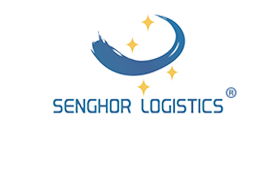Freight Forwarder vs. Carrier: What’s the Difference
If you’re involved in international trade, you’ve likely encountered terms like “freight forwarder”, “shipping line” or “shipping company”, and “airline”. While they all play roles in moving goods across borders, their functions and value to importers differ significantly.
What is a shipping line or airline?
Shipping lines or shipping companies (e.g., Maersk, MSC, CMA CGM) and airlines (e.g., FedEx, Lufthansa Cargo, or CA, CZ, MU in China) are “carriers”. They own and operate the physical assets—vessels, aircraft, and containers—that transport goods globally. They directly control shipping routes and shipping space, and their main responsibility is to provide space for cargo transportation between ports or airports.
Key characteristics of carriers:
1. Focus on point-to-point transportation.
2. Sell space (e.g., a container slot or air cargo pallet) to freight forwarders or directly to large-volume shippers.
3. Responsibilities end when goods are loaded/unloaded at origin/destination ports or airports.
4. Beyond transportation, shipping companies and airlines are largely inactive in other processes, such as cargo declaration, inland hauling (from the factory to the port), and customs clearance at the destination port. Shippers typically have to handle these themselves or outsource them to other agencies.
What is a freight forwarder?
A freight forwarder (like Senghor Logistics!) acts as your “logistics partner and intermediary”. We don’t own vessels or planes but leverage relationships with multiple carriers to design end-to-end supply chain solutions tailored to your needs. Freight forwarders offer a more comprehensive service, covering the entire shipping process, from front-end to back-end.
Key services freight forwarders provide:
1. Multi-mode logistics solutions planning: Where available, we compare sea freight, air freight, rail freight, and road transportation shipping options to optimize cost, speed, and reliability.
2. Documentation and compliance: We assist cargo owners in compiling customs declaration documents (such as commercial invoices and packing list verification), liaise with customs brokers for export declaration, arrange inland trucking (from the factory to the warehouse at the port of departure), and coordinate cargo entry and inspection.
3. Cargo consolidation: Offer LCL (Less than Container Load) services and consolidation services to reduce costs for smaller shipments.
4. Communicate with shipping companies: Track cargo booking progress, confirm shipping space with shipping companies, obtain bills of lading, and deliver them to cargo owners or agents at the port of destination.
5. Customs clearance: Manage customs brokerage at origin and destination to avoid delays or penalties.
6. Cargo insurance: Provide coverage options to protect your goods against transit risks.
7. Communicate with local agents: Liaise with agents at the port of destination, assist cargo owners with customs clearance at the port of destination, arrange inland delivery (transporting goods from the port to the delivery address), and handle shipping issues (e.g., cargo delays, document modifications).
Why Choose a Freight Forwarder Over Booking Directly with a Carrier?
| Aspect | Freight forwarder | Carrier (Shipping line/Airline) |
| Scope of Service | End-to-end: door-to-door logistics, documentation, customs | Point-to-point: port/airport-to-port/airport only |
| Flexibility | Multimodal options and tailored solutions | Limited to their own routes and schedules |
| Cost efficiency | Negotiated rates, consolidation service offered | Standard rates; no consolidation |
| Risk management | Handles exceptions, insurance, and compliance | Limited liability; no support beyond transportation |
| Communication | Single point of contact for entire process | Multiple contacts needed for different stages |
In terms of the roles, shipping companies are the "transportation executors" and freight forwarders are the "service integrators." Shippers connect with shipping companies through freight forwarders, essentially exchanging "service fees" for "process simplification," while shipping companies ensure the "core shipping capacity."
When Should You Work with a Freight Forwarder?
1. You ship goods regularly and need consistent, reliable logistics partners.
2. You want “cost savings” through consolidation or LCL service.
3. You don't want to deal with customs clearance and prefer an all-inclusive price with delivery to your address (door to door service).
4. Your shipment requires special handling (e.g., fumigation certificates are required for imported solid wood products to Australia and New Zealand, or your imported goods have temperature requirements).
5. You value visibility and proactive communication throughout the shipping process.
You may have heard of the term "NVOCC", which stands for Non-Vessel Operating Common Carrier. NVOCCs are freight forwarders that do not own the ships used for transport, but instead act as carriers by providing shipping services to shippers. NVOCCs issue their own bills of lading, which serve as the transportation contract between the NVOCC and the shipper. They consolidate cargo from multiple shippers into a single shipment, which is then transported by vessels operated by third-party shipping companies.
A reliable NVOCC has sufficient experience and reputation; holds compliant licenses; has a strong freight network resources, including shipping companies, ports, etc.; can provide transparent freight rates; and provides high-quality customer service to solve customers' shipping problems at any time; and provides a range of comprehensive services, including warehousing, distribution, customs clearance and cargo insurance to meet all the logistics needs of importers.
While carriers move cargo, freight forwarders move supply chains. As your freight forwarder, we serve as an extension of your team—providing professional, high-quality service within your budget to ensure your shipment arrives on time.
Senghor Logistics is a full-service freight forwarding provider specializing in air freight, sea freight, door-to-door service, and supply chain optimization, etc. We are also an NVOCC that has contracts with shipping companies and airlines, offering first-hand access to shipping space and pricing. Besides, we offer door to door delivery support, easing your burden and saving you time and effort.
Ready to simplify your international shipping? Contact us today for a customized logistics solution that puts your business first.
Post time: Sep-17-2025









Senghor-Logistics-NVOCC-certificate-english.png)





